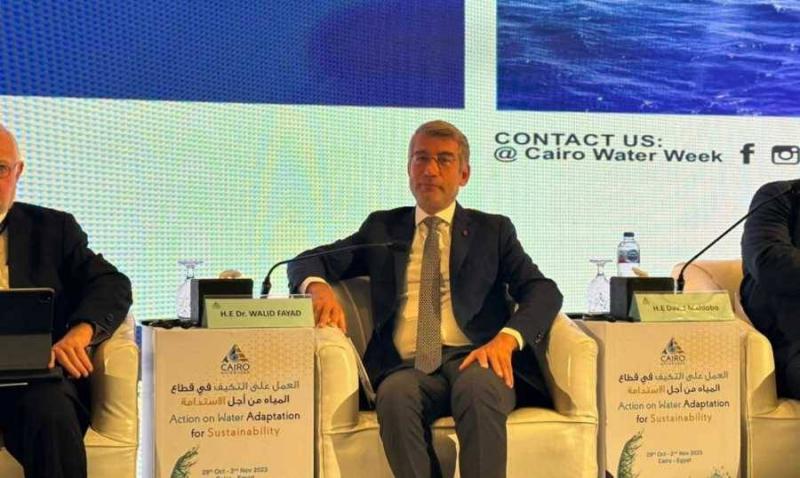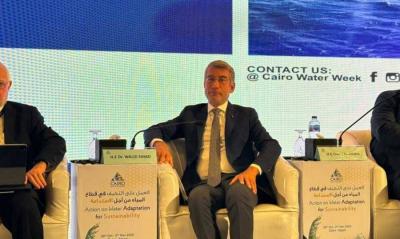The Minister of Energy and Water in the caretaker government, Walid Fayyad, participated on the sidelines of the Cairo Water Week conference held under the auspices of President Abdel Fattah El-Sisi, at the invitation of Minister of Water Resources and Irrigation Hani Sewilam. His remarks centered on how to adapt the water sector for sustainability under the title "Successful Transition in the Water Agenda from COP 27 to COP 28," where he pointed out that "climate change is historically due to fossil fuel energy, while its negative effects are more evident in the water sector."
He stated, "Energy occupies the top position in programs aimed at reducing climate change, while the water sector holds the largest share when it comes to adapting to climate change. Water is a readily available resource; however, we need to use it properly, and the required spending in the water sector is limited compared to the energy sector. For instance, spending in Lebanon on energy ranges from 4 to 6 billion dollars annually, which is not a small amount, while we need a much lower amount for operation in the water sector, ranging between 1 to 2 million dollars."
He added, "In the context of the transition from COP 27 to COP 28, we must build on the key achievements of COP 27, namely the decision to establish a fund for losses and damages, and Egypt's achievement of placing water at the heart of the climate action agenda through the launch of the initiative for water sector adaptation and sustainability (AWARe). It is important for COP 28 to continue monitoring these two paths and to translate these decisions into action, securing necessary funding for the losses and damages fund, and joining the Egyptian presidency and ministry's AWARe initiative to ensure its success."
Fayyad continued, "Investments in the water sector should be prioritized; the presidency and the Egyptian ministry are working to raise awareness in this regard and have placed it at the core of their priorities. All countries are invited to gather and contribute to these valuable initiatives that benefit nations and their communities."
He further remarked, "We see many political maneuvers regarding funding, and the question that arises for a simple citizen in the world is: with billions of dollars being spent on the war in Palestine, which leaves nothing but destruction and death away from international norms and laws, and any humanitarian principles, instead of securing the Palestinian people's right to enjoy their freedom, sovereignty, and independence, and establishing an independent State of Palestine—shouldn't we redirect the resources of capable countries away from the crazy and destructive wars in Palestine or Ukraine and invest it in the water sector?"




